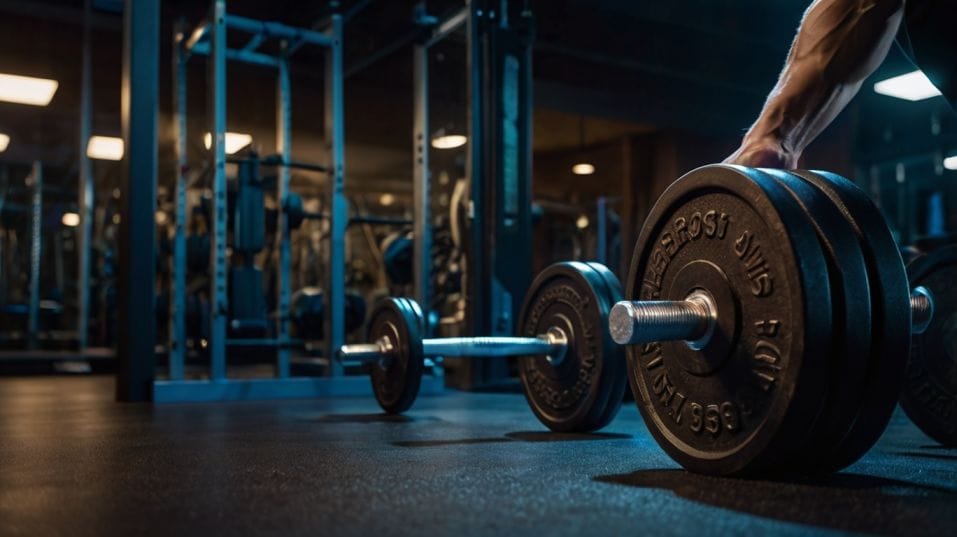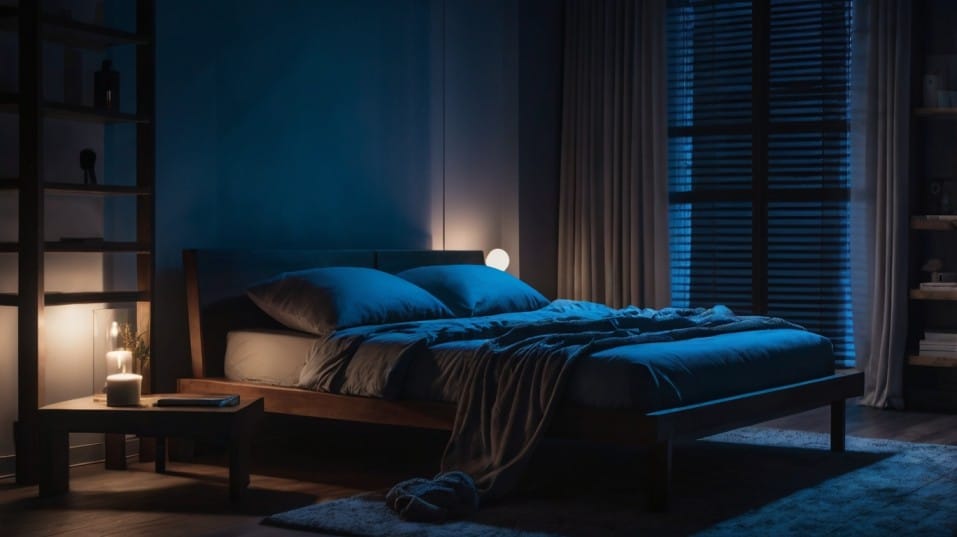Is Your Sleep Holding Back Your Gains?
Missing results despite solid training? Sleep could be the key. Discover how better rest boosts muscle growth, recovery, and daily performance.

What if the reason you’re not seeing results isn’t your workout or your diet—but what you do after dark? You train hard. You eat clean. But if sleep is an afterthought, you're stalling progress without even realizing it.
This isn’t just about feeling rested. Sleep is your body’s most powerful recovery tool, fueling muscle growth, sharper thinking, and next-level performance. Ready to stop leaving gains on the table? Let’s fix your nights.
Your Body Doesn’t Grow in the Gym—It Grows While You Sleep
Let’s get something straight: muscle growth doesn’t happen when you're training. It happens when you're recovering.
Training creates micro-tears in your muscle fibers. Sleep is when your body repairs those tears and builds them back stronger. The deeper the sleep, the more efficient the recovery.
During deep sleep, your body releases pulses of growth hormone, which is essential for tissue repair, muscle development, and fat metabolism.
If you’re cutting your sleep short or tossing and turning through the night, those hormone surges shrink.

That means slower muscle growth, longer recovery time, and progress that never quite sticks. But the gains don’t stop at the gym. Cognitive performance gets a boost, too.
Sleep solidifies memory, sharpens motor skills, and improves reaction time—crucial whether you’re trying to lock in a new lift or dominate your next workout with better form and focus.
Sleep Debt? It Compounds
You might think you can "catch up" on sleep over the weekend. That’s a myth. Your body doesn't work like a bank account.
When you miss deep, restorative sleep during the week, the damage to your recovery, metabolism, and performance starts stacking up.
Even one night of poor sleep can mess with:
- Insulin sensitivity: Making it harder for your muscles to absorb glucose, which fuels performance and recovery.
- Testosterone production: Dropping levels significantly, especially in men who sleep less than six hours consistently.
- Cortisol balance: Spiking your stress hormone and breaking down muscle tissue instead of building it.
That frustrating plateau you can’t break? It might not be your training plan. It might be your bedtime.
How to Sleep Like a Pro (Even if You’re Just Getting Started)
Optimizing your sleep isn’t about turning your life upside down. It’s about tweaking the right things, consistently.
Consistency is king. Go to bed and wake up at the same time—even on weekends.
This stabilizes your circadian rhythm, which regulates not only your sleep-wake cycle but also hormones tied to hunger, stress, and recovery. The more consistent your rhythm, the more predictable your energy and performance.
Kill the screen. Blue light from phones, tablets, and TVs suppresses melatonin—the hormone that cues your body it’s time to sleep.
Cut off screens at least 30–60 minutes before bed. Can’t ditch the phone? Use a blue-light filter or blue-blocking glasses, but understand it’s a second-best fix.
Cool it down. A lower core body temperature is critical for falling and staying asleep. Aim for a bedroom temperature between 60–67°F (15–19°C).
Your body needs to cool down to enter deep sleep phases. Heat = restlessness. Cold = deeper recovery.
Control caffeine. You might not feel wired after that 4 PM coffee, but the stimulant is still working behind the scenes.
Caffeine blocks adenosine, the chemical that makes you feel sleepy. Cut off caffeine 8 hours before bed. Earlier is better.
Respect the wind-down. Your body doesn't switch into sleep mode the second you hit the pillow. Create a short wind-down ritual to tell your nervous system it’s safe to power down.
That could mean stretching, breathwork, reading a physical book, or taking a hot shower (which helps drop your body temp afterward).
Get real sunlight. First thing in the morning, get outside or near a window.
Natural light tells your brain to shut off melatonin and boosts serotonin, which later converts into melatonin again for deeper sleep at night. One quick change here can lock in your whole sleep rhythm.
The Mental Gains You Didn’t Know You Were Missing
Great sleep doesn’t just heal muscles—it sharpens your mind. It fuels the kind of mental clarity and grit that pushes you through hard sets and heavy days. With quality sleep, you'll notice:
- Sharper reaction time
- Improved focus under fatigue
- Stronger discipline and decision-making
- Better emotional regulation (say goodbye to that short fuse on low-energy days)
This edge isn’t just noticeable—it’s trainable. The more consistent your sleep, the more consistent your performance. That’s the feedback loop you want.
Final Thoughts: Unlock Your Full Potential—One Night at a Time
If you’re training hard and eating right, but still feel stuck, don’t ignore what happens between 10 PM and 6 AM.
That’s where the real transformation begins. Sleep isn’t downtime—it’s prime time for gains. Deep recovery. Mental clarity. Physical growth. It all starts in the dark.
Don’t wait for a crash to start fixing your sleep. Start tonight. Set a bedtime. Power down your screens. Cool your room. Own your recovery the same way you own your workouts.
Sleep like someone who gives a damn about their results. Because that’s how you start winning—before you even wake up.




